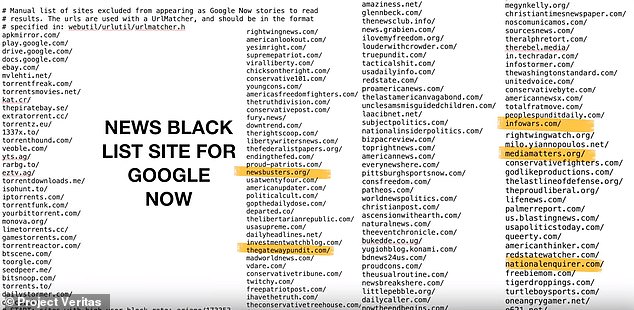The Google Files, Part III
What Happened? Hillary Rodham Clinton.
No, no, Hillary wasn’t behind it (this time). I just couldn’t resist referencing one of my favorite jokes of all time by the late, great Norm MacDonald.
But the election of Donald J. Trump over Hillary R. Clinton had everything to do with what happened inside Google starting in 2016.
Pre-2018 – SEO success is largely determined by links
Google began in 1998 based on a simple premise. You can read about it in Google’s patent. They saw the World Wide Web as a “democracy” and every Web site could “vote” for others. How? By linking to them.
It was a brilliant concept.
The assumption was that less authoritative Web sites would link to more authoritative Web sites, so that the most authoritative sites would have the most links pointing at them.
For example, If I had a blog about smartphones, I might link to a site like CNET, which in turn might link to a site like Apple. Multiply that by dozens or even hundreds of bloggers and sites, and Google could figure out that Apple should be ranked first for searches on “iphone”, and CNET should be close behind.
For a few years, Google results were uncannily good. But of course, as humans tend to do, they found ways of cheating. They stuffed Web pages with content that was designed to fool search engines. They bribed sites that had nothing to do with them to link to them. Those of you who used Google between 2012 and 2015 probably remember how bad Google results got during that time.
But by 2015, Google started using a combination of their existing model and AI to counteract the cheaters. And for a while results were as uncannily good as they were in 1998.
Then Hillary lost.
I’m not sure if you remember the weeping and gnashing of teeth that happened in 2016, but here’s what it looked like in Google’s Mountain View headquarters. Here’s a reminder.
If you were someone in that room in 2016, what would you do?
Well, if you were a conservative you’d keep your mouth shut. But if you were a progressive, OR if you didn’t care for politics but wanted to please your executive management, you would make sure that the pain you or your management felt in 2016 did not happen again in 2020.
2018 – Google changes its algorithm in the name of protecting against online scams in certain categories
In March 2018 Google launched the first of something they call a “broad Core Algorithm Update”. To this day, they release these updates several times a year.
Their stated goal in these algorithm updates is to tweak their algorithm to make sure that sites with “great content” get rewarded.
The update in 2018 was the first of what were to be many. That particular update was called the “Medic Update” because it disproportionately affected sites that talked about medical and financial topics—two categories which were most vulnerable to scams.
Most of us in the SEO world (and the rest of the world) cheered. Up to that point, it seemed that Google was powerless to fight scam sites, Web sites spewing clear misinformation masquerading as legitimate content.
As with all scams over history, these scams preyed on the vulnerable; elderly people tricked into emptying their bank accounts, gravely ill people being sold miracle cures. Everywhere you looked, it seemed you saw Viagra ads or payday loan schemes. Google was finally putting an end to these sites.
It seemed that Google was finally getting better at recognizing true “authority” sites from fake sites.
In Google’s words they looked for three things: “Expertise”, “Authority”, and “Trust”. Create content with those things, and we’ll rank you. But what Google was really doing was what some may call “censorship”. They limited the sites that could rank in these categories to a small set of “authority” sites.
Prior to 2018, if you were an individual blogger writing about a medical topic you could rank on Google if enough people linked to your content and shared it. Post-2018, there was no way you would have any visibility unless you were with an “authority” such as the CDC, Mayo Clinic, or the WHO.
Post-2018 – Google quietly includes News as a protected category
Think back to that struggle session in Google headquarters in 2016 and those who wept and gnashed their teeth at the thought that their product had been part of enabling orange Hitler to ascend to the throne.
Now, think back to that same group of people. Their engineers (the vast majority of whom probably had zero political leanings one way or another) had designed as system where they could artificially boost or demote any content they liked for any query.
Like I said earlier, there is no need for “The Google Files”. Everything that Google did is out there for the public to see, and there are receipts.
In Part IV, we’ll see exactly how Google played a major role in shaping public opinion for the 2020 election.






